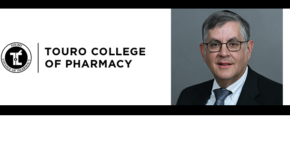 What is the most powerful tool for testing for COVID-19?
What is the most powerful tool for testing for COVID-19?
Zvi Loewy, professor in the department of pharmaceutical and biomedical sciences at the Touro College of Pharmacy, explores the answer.
Dr. Loewy has a diversified professional background that includes more than 30 years in academia, executive leadership with major global pharmaceutical companies, and creation and management of biotech startup companies .Dr. Loewy is a graduate of Yeshiva University (B.A.), Rensselaer Polytechnic Institute (M.S.) and the Albert Einstein College of Medicine (Ph.D.). In addition to his position at Touro College of Pharmacy, he is on the faculty of New York Medical College and serves on the boards of the Jerusalem College of Technology and the New Jersey Technology Incubator .Dr. Loewy is a member of the scientific advisory board of C3 Jian, a private company focused on providing improved oral health care. He is a member of the steering committee of the Pennsylvania Translational Research Partnership Institute and the Coulter advisory council, and he is an editor of the Journal of Prosthodontics. Dr. Loewy has published broadly and holds over 25 patents.
Molecular Diagnostic Testing for COVID-19
As communities move toward restarting normal life after quarantine, widespread testing for COVID-19 will be crucial for protecting public health.
Molecular diagnostic tests are the most powerful tool for containing the pandemic. These tests check swab samples for genetic material from the virus, and can measure the amount of the virus in the body, also called the viral load. They can track where the virus has been on surfaces and in air handling systems as well as in people.
These tests use polymerase chain reaction (PCR) to identify fragments of viral RNA. While at Roche Diagnostics in the 1990s,I led the development of the first automated system for running PCR tests. Roche’s Cobas SARS-CoV-2 test was one of the first COVID-19 diagnostic tests to be approved by the FDA on March 16.
Antibody tests check the blood to determine if a person’s immune system has produced proteins targeting the virus. People who test positive have probably been exposed to the virus, but this doesn’t necessarily mean that they are immune to it. The US Public Health Service has recommended that molecular tests be used to diagnose or rule out COVID-19 infection, and says diagnosis should not be based on antibody tests alone.
Many US states how have testing programs up and running. The COVID Tracking Project has given 28 US states “A” grades——for their reporting of COVID-19 testing and patient outcomes. But we still have a long way to go.

Comments
4 responses to “Zvi Loewy, Touro College of Pharmacy – Molecular Diagnostic Testing for COVID-19”